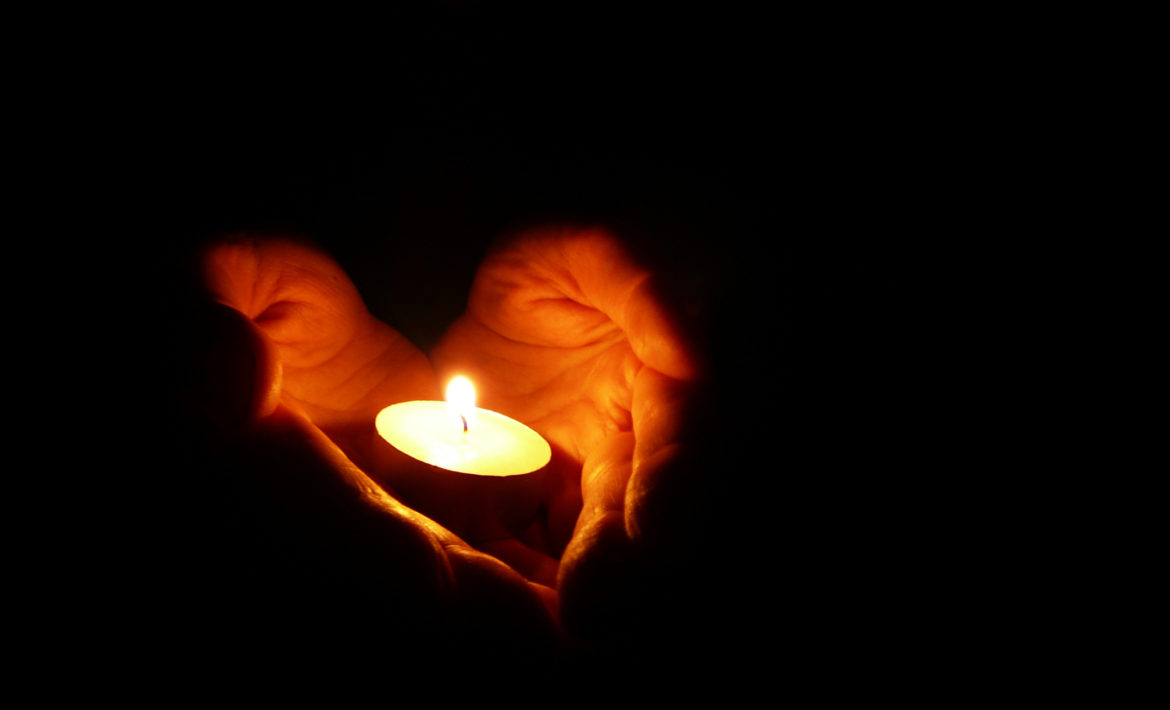From the Pastor’s Desk -February 2015
A new commandment I give to you, that you love one another just as I have loved you, you also are to love one another. By this all people will know that you are my disciples, if you have love for one another. (John 13:34-35)
I don’t know how many of you saw the movie, Castaway, starring Tom Hanks. Hank’s character was aboard a FedEx plane that crashed into the south Pacific. He was the only survivor, who miraculously washed up on the beach of a small uninhabited island where he was marooned for several years. Eventually, after much effort, he lashed together enough scraps of wood to make a raft and against all odds of surviving, set sail in the vast Pacific, only to be rescued by a freighter. The movie revolves around his feelings of utter isolation and his desperation for human contact, yet at the end of the movie we find him standing alone at a crossroads in the wide open prairie appearing to look as if he had, after all this time, gotten used to the solitude.
There are those, of course, who we would consider hermits, but by and large most people are social creatures. We need contact with others. This is why we have villages, and towns, and cities.
Yet there is an interesting phenomenon that in larger and more populous environments there is an almost self-imposed isolation. For example, in a small country store, people are often more apt to engage one another in conversation, but in a larger city, it is much less likely to happen. Try making eye contact with people, for example, while walking down a crowded street in New York City. I noticed this especially while riding on the crowded subway in Beijing. It is impossible not to have physical contact with others, but everyone makes their own private space, most often with smart phone in hand. The need for interpersonal contact notwithstanding, people are suspicious of one another unless they have a relationship with one another.
One of our Elders called attention to the fact that in Paul’s prayers for the various churches to whom he addressed his epistles, he prays specifically that we might “know God” better. He also prays that we might love one another more, and exhorts us accordingly. A pattern that I am beginning to see here is that there is actually a strong correlation between the two.
When Moses delivered God’s code of ethics to ancient Israelites from the side of the mountain they specifically addressed our relationship with God and our relationship with one another. So when Jesus was asked by the religious leaders of his day what the greatest commandment was, he summarized the Commandments by saying, “You shall love the Lord your God with all your, heart, soul, mind, and strength.”, and “you shall love your neighbor as yourself.” The problem is, both of these areas of life were impacted dramatically by the fall. We fail miserably at both.
This is graphically portrayed in the earliest chapters of the Bible. It is plain to see in the lives of Adam and Eve. Prior to their eating of the prohibited fruit they had perfect harmony with God and a very harmonious relationship with each other, but after their eating of the fruit, they hid from God and sought to conceal themselves from his sight. They also showed the first conflict in their relationship by shifting the blame of sin to each other. Then in the next chapter, we see that their first son came to a crisis in his relationship with his brother because of jealousy, covetousness, and envy, and took his resentment to an extreme by killing his brother. We gasp at the callousness, but it is all too common in our world, and even manifests itself in more subtle ways in our own lives.
What is amazing is, when we think of the curse which God placed on Cain to be a “fugitive and a wanderer”, Cain cried out in distress. The prospect of isolation was unbearable. And yet, in the true sense, it was the curse he had brought upon himself. And it is the curse we bring upon ourselves.
Enter Jesus. Jesus came to his own and his own rejected him. Yet it was in that rejection that he would restore us to the God who knows us and desires to be known by us, and also to restore us to one another.
Enter the church. The church is such a strange mixture of people who long to be known by others and yet, like Cain, resist the demands of knowing and loving others. Here again, we see the need for God’s grace. And that really is the key, isn’t it?
Pastor Tom Bridgman

